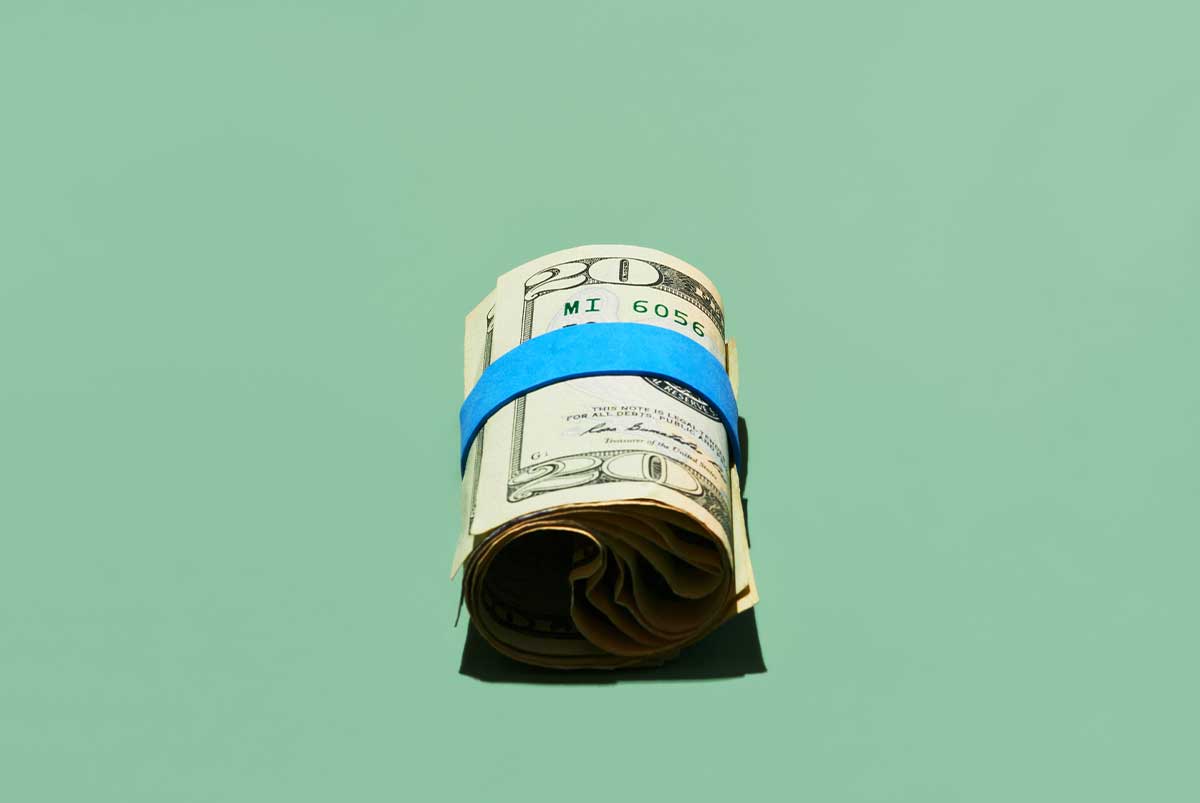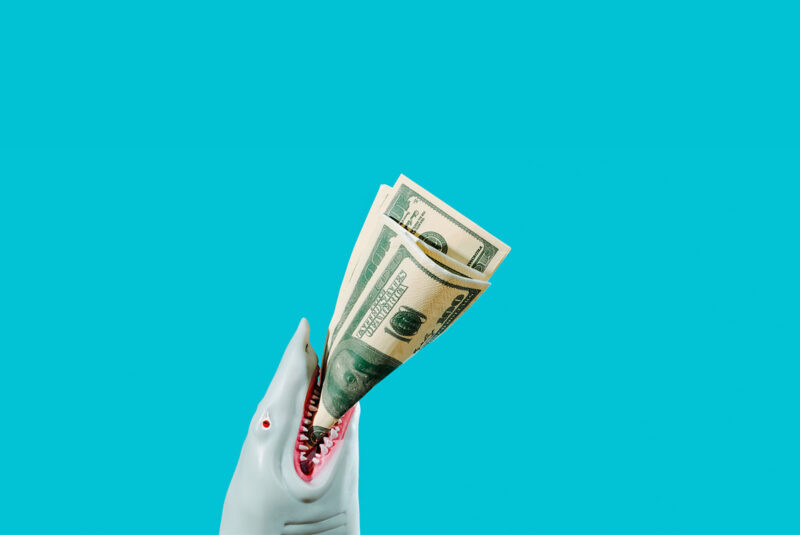Explore your mortgage options
If you’re interested in either a payday loan or a personal loan, odds are you need extra cash. Fast. But which of these options should you choose?
We’ll explain the key differences between how payday loans and personal loans function and the relative strengths and weaknesses of each choice. We hope that by the end of this article, you’re better equipped to choose the right one for your circumstances.
See What You Prequalify For
Get prequalified offers for personal loans from Rocket LoansSM within seconds. Like what you see? Same-day funding is available.
Checking your options won’t affect your credit score.
Payday Loan vs. Personal Loan: Key Differences
There are two major differences between payday loans and personal loans: how much you can borrow and the loan terms. But let’s take a look at some other differences in more detail.
| Payday Loans | Personal Loans | |
| Loan value | Usually $500 or less | Usually between $2,000 – $45,000 |
| Repayment timeline | Repaid in 2 – 4 weeks in one lump sum | Repaid in 2 – 7 years in monthly installments |
| Fees and Interest | Fees and interest rates are extremely high, higher than any other financing option | Fees and interest rates can be lower than payday loans |
| Qualifications | Lenders don’t typically check your credit score to see if you qualify. | Lenders will check your credit score, debt-to-income (DTI) ratio and income history as part of your application |
| Impact on credit score | Usually aren’t reported to credit bureaus, which won’t help build your credit history | Often reported to credit bureaus, which may help build your credit history |
How Payday Loans Work
A payday loan is one way to get a modest amount of money (usually $500 or less) fast, sometimes as quickly as an hour. Payday loans can cover unexpected expenses like small medical bills or car repair bills. Payday loans are usually unsecured, meaning that they don’t require collateral.
One of the reasons that payday loans are appealing is that lenders usually won’t do a credit check, which means that you can secure one of these loans even with bad credit.
On the flip side, payday loans have short repayment terms, usually 2 – 4 weeks, whenever you get your next paycheck (hence the name). They also have some of the highest interest rates of any financing option, which makes them even more difficult to pay off.
Payday loan rollovers
Some states let you roll your payday loan over to the next month if you can’t pay it off by its original due date. While the extension may bring some relief, it will also bring more fees and potentially create a cycle of debt that’s hard to break.
Even if you roll over your loan, you must pay its original fees by the due date. Your lender will give you another 2 – 4 weeks to pay off the loan plus its newly added fees (which may include a rollover fee).
How Personal Loans Work
Personal loans usually come as unsecured loans, although some lenders do offer secured personal loans. They typically range in value from about $2,000 – $45,0000, making them useful for everything from debt consolidation to emergency expenses.
After a lender approves your loan application, you receive the loan in one lump sum. Interest on the loan starts to accrue immediately, and your repayment term begins. Carefully calculating how much you need before applying for a loan can help protect you from paying more in interest than you need to.
Get Cash Fast
Rocket LoansSM offers same-day funding for personal loans. Get prequalified and get the cash you need, fast.
Comparing Payday Loans and Personal Loans
Now that you understand what the key differences are and how each loan type works, we’ve compiled a list of their relative advantages and disadvantages so that you can start weighing these factors for yourself.
Payday loan pros and cons
PROS of payday loans👍
Payday loans are relatively easy to qualify for, usually only requiring a valid government ID and proof of income. There’s no credit check.
Payday loans can be issued faster than any other type of loan, sometimes within one hour. That can make a big difference if you need cash fast.
CONS of payday loans👎
Payday loans are usually capped at around $500. You could qualify for significantly more if you get approved for a personal loan.
The annual percentage rate (APR) for payday loans are some of the highest for any type of financing. It’s common to see them climb as high as 400%.[1]
Payment terms are usually short, 2 – 4 weeks. The entire loan amount is typically due within that time frame.
One last factor to consider with payday loans is that they’re generally not reported to credit unions. This could either be a positive or a negative: if you struggle to repay the loan, it won’t adversely affect your credit. But if you make your payments on time they won’t build your credit either.
Personal loan pros and cons
PROS of personal loans👍
Personal loans are typically available in amounts up to $45,000, giving you significantly more spending power than what you would achieve with a payday loan.
You probably can’t get them quite as fast as a payday loan, but personal loans are still relatively fast once you’re approved. It usually only takes a few business days and some lenders can get you the funds in as little as one business day.
Personal loans tend to have lower interest rates than payday loans.
CONS of personal loans👎
Lenders will review your credit score, DTI ratio and income history as part of your application for the loan.
Because lenders typically report these loans to the credit unions, failure to make your payments on time could damage your credit score.
When To Consider a Payday Loan
Payday loans are good for smaller, surprise expenses but come with high fees. Because lenders don’t look at your credit score to qualify you for a payday loan, a low credit score shouldn’t prevent you from qualifying for a payday loan – but they should be a last resort.
If the amount you need is small and you know you can pay it back by the time your next paycheck rolls around, it might be a better option than a personal loan.
When To Consider a Personal Loan
Personal loans are good for big, one-time expenses and are repaid over time with fixed monthly payments, plus interest. A personal loan may be a better option than a payday loan if you need to spread out payments over time.
Lenders will check your credit score to see if you qualify for a personal loan. If you have a low credit score and a spotty credit history, it will likely be harder to qualify for a personal loan.
Keep in mind that when a lender checks your credit, it can affect your credit score. If you can’t afford the temporary dip in your credit score, a payday loan might work better as a quick, last-resort option.
Alternatives to Payday Loans and Personal Loans
There are plenty of alternatives out there when it comes to borrowing money.
Lenders will look at your income to see if you qualify for a loan. Except for the payday alternative loan, lenders will also look at your credit report and debt.
- Payday alternative loan (PAL): PALs are offered by credit unions. You can borrow up to $2,000 and repay it in 1 – 12 months.[2] PALs have much lower fees than payday loans and are regulated by the National Credit Union Administration.
- Home equity loan: A home equity loan lets you borrow a lump sum of money against the equity in your home. It’s a secured loan (which means the loan is backed by your home) and the interest rate on the loan is fixed.
- Home equity line of credit (HELOC): HELOCs aren’t quite the same as home equity loans. Like a home equity loan, you borrow against your home’s equity. Instead of receiving the loan as a lump sum, you get a line of credit to borrow from, like a credit card. HELOCs have variable interest rates, and you must have at least 15% equity in your home to qualify.
- Credit card: Credit cards are revolving credit accounts. You use the card up to its credit limit and pay the minimum or entire balance every month. Credit card interest rates are typically higher than the interest rates for personal loans, but you only pay interest on what you borrow.
- Personal line of credit: A personal line of credit is an unsecured loan that behaves a lot like a credit card. With a personal line of credit, there is a draw period where you can withdraw funds. At the end of the draw period, the loan enters the repayment period. The interest rates for personal lines of credit are lower than credit cards but usually higher than personal loans, home equity loans and HELOCs.
Final Thoughts on Payday Loans vs. Personal Loans
If you need to borrow some emergency money, you’ve got two options: a payday loan or a personal loan. But a payday loan will almost always cost you more money, putting you at risk of getting trapped in a relentless cycle of debt.
A personal loan allows you to borrow the money you need, gives you a longer period of time to repay it and comes with a lower interest rate than a payday loan. If your credit score and credit history meet the mark, it may be better to apply for a personal loan.
Get Prequalified for Loans from $2,000 to $45,000
Rocket LoansSM offers personal loans from $2,000 – $45,000. From debt consolidation to unexpected expenses, we’ve got you covered.
Checking your options won’t affect your credit score.
The Short Version
- Key differences between payday loans and personal loans include the loan value, repayment timelines and interest rates
- A credit check is not required for a payday loan, but you’ll be required to pay the entire loan back on a short timeline (usually 2 – 4 weeks)
- Personal loans have stricter requirements with regard to your credit score and debt-to-income (DTI) ratio but are available in larger amounts
Consumer Financial Protection Bureau. “What Is a Payday Loan?” Retrieved February 2024 from https://www.consumerfinance.gov/ask-cfpb/what-is-a-payday-loan-en-1567/
National Credit Union Administration. “Payday Alternative Loan Rule Will Create More Alternatives for Borrowers.” Retrieved February 2024 from https://www.ncua.gov/newsroom/press-release/2019/payday-alternative-loan-rule-will-create-more-alternatives-borrowers




